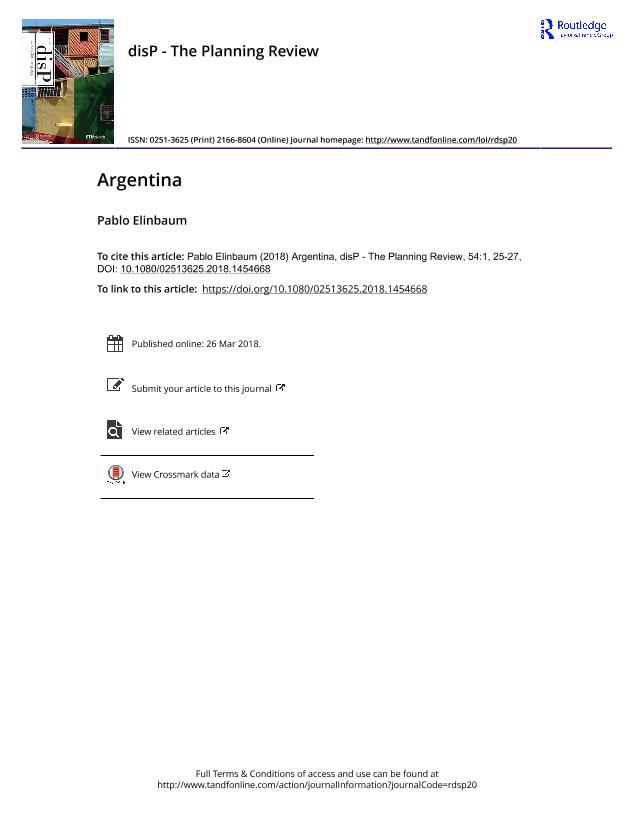Artículo
Argentina
Fecha de publicación:
01/2018
Editorial:
Routledge
Revista:
disP - The Planning Review
ISSN:
0251-3625
e-ISSN:
2166-8604
Idioma:
Inglés
Tipo de recurso:
Artículo publicado
Clasificación temática:
Resumen
The objective of this article aims to inform the current status of the urban planning system in Argentina. Through a case study, six key issues have been analysed: (1) present status of planning, (2) discourses about planning, (3) theory and practice, (4) social, economic and spatial disparities, (5) planning education, and (6) planning knowledge exchange. The results show that the uniqueness of the Argentine planning system lies in the lack of a legal framework that integrates territorial planning and urbanism, and in the relative federal autonomy that prevented the provinces and municipalities to have their own urban legislation, promoting the rescaling of national government interventions. Among the issues that dominate planning discourses, on the one hand, it is worth mentioning the debates in the field of architects that dominate professional practice and the generic issues established by international organizations that finance most of the urban plans such as the World Bank or the IDB. They pushed notions such as "sustainability", "governance" or "intelligent growth" into State institutional frameworks. On the other hand, the topics that are discussed in the academy arise from basic research in the diffused field of urban studies. The most developed are: global dynamics of urbanization, management of public policies and housing and cultural history. The influence of social sciences has shunned the meagre production of knowledge from planning experiences, explaining, in part, the current split between theory and practice. This separation is also found in urban planning teaching institutions that remain confined within the architecture career (as a dominant field), while postgraduate courses are based on exported contents and totally deregulated scope. Finally, it is worth mentioning that the transfer of technical knowledge between Argentina and the rest of the Latin American countries is very weak. Although the proliferation of information about "best practices", especially from Brazil and Colombia, urban planning models are rarely considered from a critical evaluation of their performance in the native context.
Archivos asociados
Licencia
Identificadores
Colecciones
Articulos(CEUR)
Articulos de CENTRO DE ESTUDIOS URBANOS Y REGIONALES
Articulos de CENTRO DE ESTUDIOS URBANOS Y REGIONALES
Citación
Elinbaum, Pablo; Argentina; Routledge; disP - The Planning Review; 54; 1; 1-2018; 25-27
Compartir
Altmétricas




